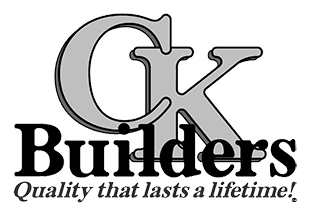Nobody likes sticking to a budget, but when you are completing a renovation project, creating and sticking to your budget is vital to the project’s success. A little time and research before you start will save you money, time, and frustration during your project.
Before leaping into the construction phase, you will want to ask yourself some key questions.
- Why do you want to renovate your home? Are you needing more living space or storage? Are you wanting to create an open floor plan or upgrade an outdated look? Defining your project goals will help you decide where to spend your budgeted dollars.
- What are my must haves? Drilling down your needs and wants will allow you to predetermine materials and finishes you will be using. This will assist you and your contractor in setting a realistic budget and help you stick to it.
- How am I going to finance the project? Many homeowners choose to use a home-equity line of credit (HELOC) which allows you to borrow against the equity you have in your home; others pay cash. Whatever your mode of payment, you want to have your maximum spending limit determined before you start the project.
When you have determined your project why, wants, and funding, you are ready to create your budget.
The truth is that most home renovations cost a lot more than the homeowners expect. Materials and labor have steadily increased over the past 20 years and things simply don’t cost what they use to. If you are in a rural area, expect costs to be higher than in the city. A good rule of thumb is to take the amount you think it will cost and double it. Working with a general contractor during the budgeting process will help you set a realistic budget and save you from some sticker shock.
If you are completing the budget by yourself, you will want to keep a few things in mind.
1. Don’t forget taxes and shipping.
When researching your initial costs, it’s easy to forget about taxes and freight. On small items like a faucet the taxes are minimal, but taxes on an entire set of kitchen cabinets could run you $300+. Forgetting these costs could sabotage your budget right from the start.
2. Don’t forget about permitting fees.
Most municipalities charge permitting fees for home renovations. Some are flat fees that are a set dollar amount regardless of the project scope and some are percentage based on the cost of the project. You will want to contact your local building department to determine the cost of permitting for an accurate budget.
3. Predetermine the project scope and lock it in.
This will help you keep your budget on target by eliminating the temptation to expand the project scope. All too often projects are started, and an idea is proposed to add this or that. One or two simple changes won’t kill your budget, but several small changes can add up to big dollars. Combine this with change order fees and you wipe your budget right out.
4. When comparing estimates make sure you are comparing apples to apples.
By making sure that the contractors are bidding the same quantity, quality, and style, you won’t be surprised by missing or hidden items.
5. Use a general contractor.
Should I use a general contractor? That is always the questions. Often general contractors have a network of sub-contractors that provide quality services at a discounted rate. By using a general contractor, you tap into the discounted savings while having one point of contact for the project.
6. Know the different costs
Know the difference between hard, soft, and contingency costs and budget for them accordingly. Hard costs account for the physical construction costs of the project. Examples of hard costs include excavation, HVAC, plumbing, etc. Soft cost are costs that are just as important as hard costs but are less recognizable. This typically include permitting, design fees, engineering, taxes, insurance, etc. Contingency costs are costs that were not expected but can cause quite a problem if not budgeted for. These include code compliance and restrictions, ADA compliance updates, and repairs that could not be seen at the time of initial bids. Contingency costs are usually a percentage of the total cost and if not used, goes back into your pocket.
By keeping these tips in mind when creating your budget, you can eliminate omissions, errors, delays, and even incompletion of your project. You will be confident in the projected renovation costs and keep your project on time and budget.

